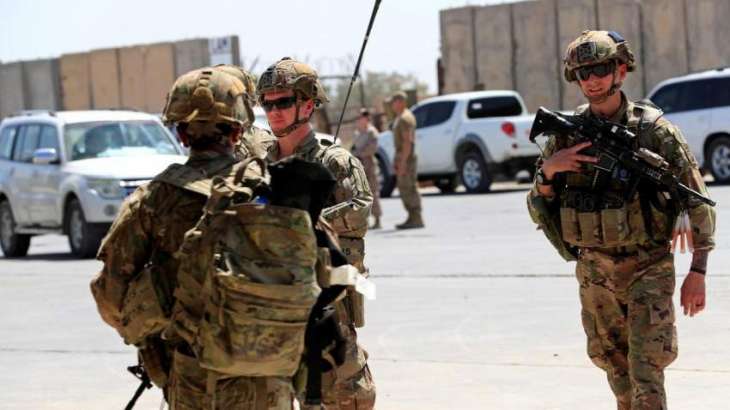Even despite promises made by US President Donald Trump's administration concerning the reduction of the United States' military presence in foreign nations, in particular Iraq and Afghanistan, nothing has changed in Washington's policies, and when some US troops are withdrawn from one place, they are sent to another, Madelyn Hoffman, a longtime environmental and social justice activist, who is the Green Party candidate for the US Senate, told Sputnik
MOSCOW (Pakistan Point News / Sputnik - 11th September, 2020) Even despite promises made by US President Donald Trump's administration concerning the reduction of the United States' military presence in foreign nations, in particular Iraq and Afghanistan, nothing has changed in Washington's policies, and when some US troops are withdrawn from one place, they are sent to another, Madelyn Hoffman, a longtime environmental and social justice activist, who is the Green Party candidate for the US Senate, told Sputnik.
Earlier in the week, US Central Command announced that Washington will pull thousands of troops out of Iraq and Afghanistan by the end of the year. Trump vowed that Washington will reduce the number of US troops in Iraq to 2,000 "in a very short period of time." He also reiterated that the number of US troops in Afghanistan will be reduced to 4,000 and that a small number of troops will remain in Syria to protect oil fields in the northeast of the country and help the Kurds there.
"Nothing much has changed regarding [the US] troop presence around the world � if some have been withdrawn from one country they have been moved some place else," Hoffman said when asked if the US would entirely fulfill its promise to withdraw troops from war-ravaged Afghanistan.
One such example of a "castling" by the US was the recently-announced withdrawal of 11,900 military personnel from Germany and relocation of about a half of them to elsewhere in Europe. Italy, Belgium, Poland and the Baltic nations are potential destinations.
The US war in Afghanistan, probably the longest in modern US history, has been ongoing since 2001. October marks 19 years of a "war without end," Hoffman said, adding that while Trump did promise to shrink the number of troops in foreign countries, he was opposed by the Democrats "every time he has tried to do so."
"At first, the response was puzzling because in 2016 ... there was a tangible sense of war fatigue in the people of the United States and Donald Trump might have received some votes due to his stated anti-war position. But, unfortunately, the lines are blurry now," she said.
According to the Senate candidate, Trump has repeatedly deployed "extremely bellicose and bullying language" toward countries that Washington perceives as enemy states, such as North Korea, China, Iran, Venezuela, Nicaragua and Cuba. The media and the Democrats heightened the rhetoric.
TRUMP'S MOTIVATION IMPOSSIBLE TO READ
Trump's vows to withdraw US troops from foreign countries are not the first in his attempts, according to Hoffman.
"Unfortunately, it has become nearly impossible to read and understand President Trump's motivations when it comes to US military presence around the world," she said.
She recalled that these attempts are followed by the calls from the Democrats that slam Trump's military strategy and motivations.
"The noise after such an announcement is strident and acts as a deterrent to any such action. Donald Trump then withdraws his proposal, leaving the status quo in place. This has happened several times during his presidency making it very difficult to know what Donald Trump's real motives are, leaving US foreign policy unchanged and the US anti-war movement with nowhere to go," she said.
When asked if Trump expected the promises to reduce foreign troops, being supported not only by his fellow Republicans but also by some Democrats, to help him win the upcoming presidential election, Hoffman explained that it is still difficult to predict how US citizens will respond.
Back in 2016, when Trump was running for office, "there was a sense that he might be less committed to overseas military action than his opponent Hillary Clinton," she said, noting the US citizens overextending itself in Iraq. Taken into account the Gulf War of 1991 and subsequent US sanctions on Iraq, the military presence in the middle Eastern country lasted over 25 years.
"The economic and human costs to the US were astronomical. For those of us calling for US withdrawal from Iraq, we also saw a tremendous human and financial cost to the people of Iraq," she said.
According to Hoffman, in 2020 the anti-war voices in the US are still very strong.
However, it is nearly impossible to predict the sentiments of the US public because it has been "conditioned" by the media and the Democrats to oppose everything the president suggests on every issue, she concluded.




